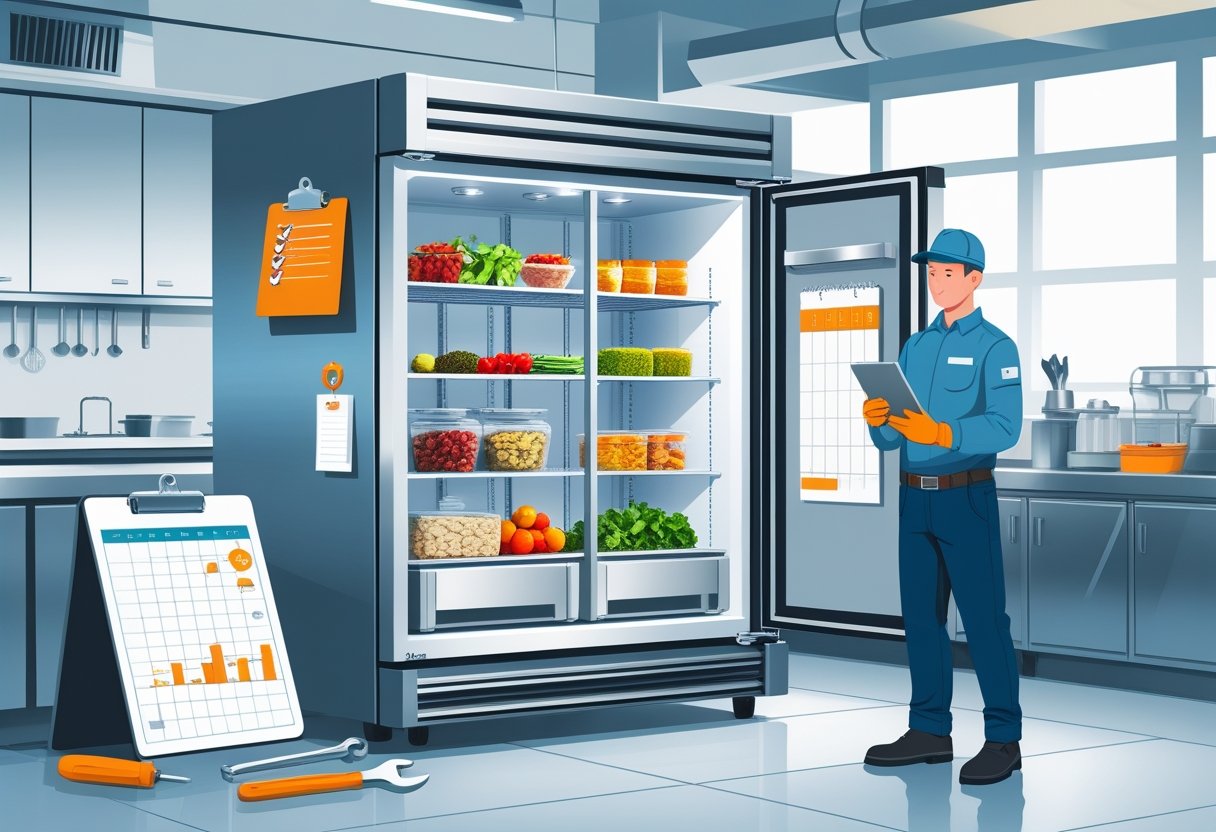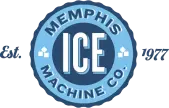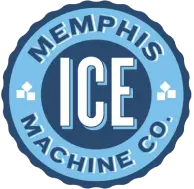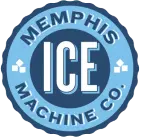proudly serving
the mid-south
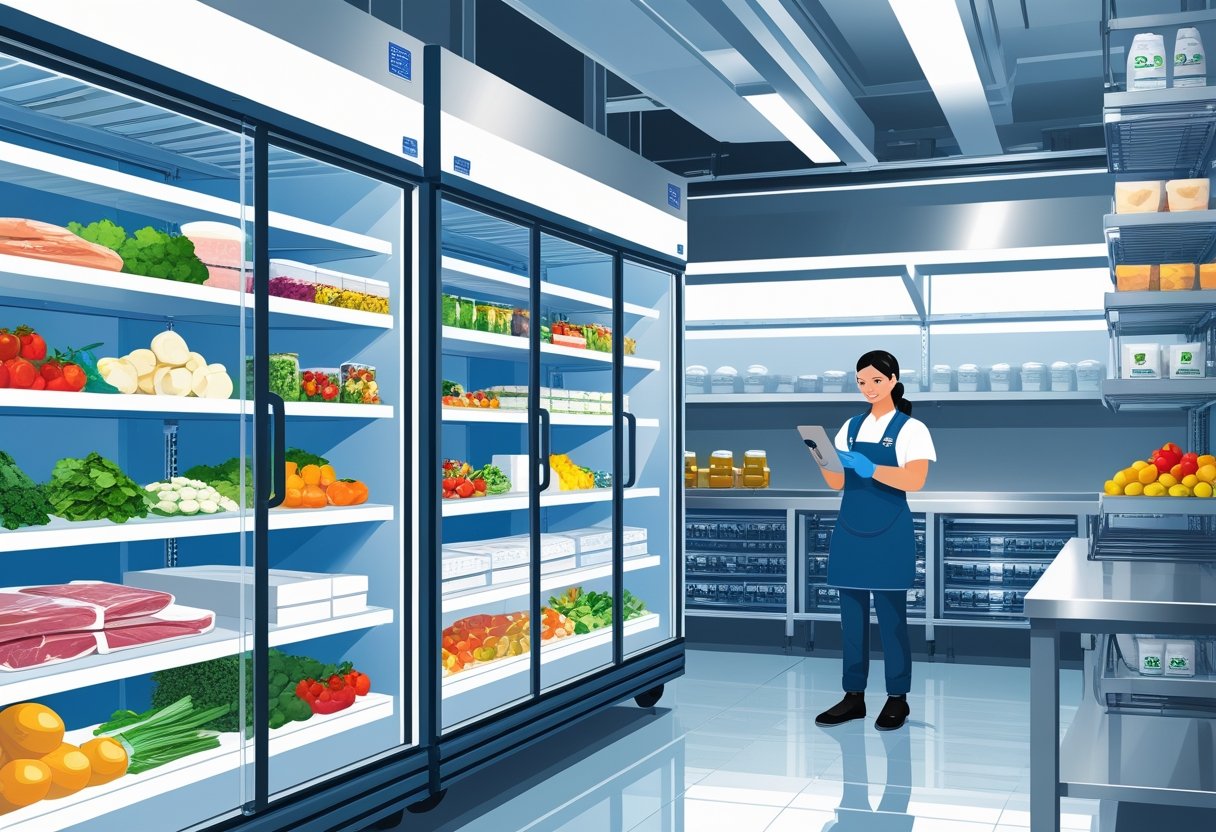
Cold Storage Solutions for Food Service Enhancing Efficiency and Safety in Kitchens
When it comes to food service, reliable cold storage solutions are essential for maintaining food safety and quality. Proper refrigeration keeps your ingredients fresh, prevents spoilage, and ensures compliance with health regulations, so your operation runs smoothly without costly interruptions. Whether you’re running a busy restaurant or managing a large commercial kitchen, having dependable equipment is not optional—it’s a critical part of your daily workflow.
At Memphis Ice, we’ve been keeping Mid-South businesses cool since 1977, offering full-service commercial refrigeration solutions tailored to your needs. From walk-in coolers to ice machine rentals, our team understands the demands you face and provides the support necessary to keep your cold storage working efficiently all year round.
You don’t have to worry about unexpected breakdowns or inefficient equipment. With expert maintenance and reliable service, you get peace of mind, so cold storage never slows you down. Consider your cold storage a trusted partner in food safety and business success.
Key Principles of Cold Storage for Food Service
Effective cold storage depends on maintaining proper temperatures, understanding the nature of the products, and preserving their quality throughout the supply chain. You need reliable equipment and precise controls to protect food safety while extending shelf life and freshness.
Importance of Cold Chain in Food Service
The cold chain is the continuous temperature-controlled path from product sourcing to final use. Breaks in this chain can cause spoilage or unsafe food, so consistent refrigeration is essential. Every step—storage, transport, and display—requires equipment that keeps food within strict temperature ranges.
For example, walk-in coolers and freezers must stay at temperatures that prevent bacterial growth but avoid freezer burn. Using reliable cold storage ensures you meet health standards and reduce food waste. Memphis Ice can help you maintain this cold chain with tailored refrigeration service and equipment.
Types of Temperature-Sensitive Products
Temperature-sensitive products vary widely: fresh produce, dairy, meat, seafood, and frozen foods all demand different conditions. Fresh items usually need refrigeration between 32°F and 41°F, while frozen goods require temperatures below 0°F to preserve texture and nutrition.
Your cold storage approach must match these requirements. Separate storage zones or specialized units prevent cross-contamination and temperature confusion. Recognizing product needs allows you to optimize energy use and maintain compliance with food safety laws.
Product Integrity and Shelf-Life Extension
Maintaining product integrity means controlling temperature fluctuations, humidity levels, and storage duration. Proper cold storage slows microbial growth and chemical changes, which keeps food fresh longer and safe to serve.
You should also monitor storage conditions regularly. Investing in quality refrigeration and trusting experts like Memphis Ice ensures equipment functions correctly. This reduces the risk of spoilage, protects your investment in inventory, and supports your reputation for quality food service.
Types of Cold Storage Facilities and Solutions
Choosing the right cold storage solution depends on your product type, volume, and required temperature control. Options range from large warehouses to specialized refrigeration systems designed to maintain precise conditions.
Cold Storage Warehouses and Refrigeration Systems
Cold storage warehouses are large-scale facilities designed to store perishable goods at controlled temperatures. These warehouses often feature advanced refrigeration systems that circulate chilled air evenly to prevent hotspots and spoilage.
You’ll find walk-in coolers and refrigerated bays within these warehouses, supporting storage for items like fresh produce, dairy, and beverages. Refrigeration systems include compressors, condensers, and evaporators working together to manage temperature efficiently.
For businesses in the Mid-South, partnering with experienced providers like Memphis Ice ensures your refrigeration system stays reliable year-round. Proper maintenance of compressors and regular checks prevent downtime and product loss.
Frozen Storage and Deep-Freezing Solutions
Frozen storage facilities maintain temperatures well below freezing, typically between -10°F and -40°F, to preserve frozen foods’ quality and extend shelf life. Deep-freezing solutions include blast freezers and cryogenic systems that rapidly freeze products to lock in freshness.
Blast freezing is crucial if you handle large batches of seafood, meat, or prepared meals, as it minimizes ice crystal formation, protecting texture and flavor. Cold storage warehouses equipped for frozen storage often have insulated walls and tight-sealing doors to maintain consistent cold conditions.
Businesses depending on frozen storage benefit from tailored systems that match product turnover rates and storage capacity. With Memphis Ice’s expertise, you can optimize your setup to reduce energy costs while meeting food safety standards.
Temperature-Controlled Facilities Overview
Temperature-controlled facilities provide precise climates tailored to specific food service needs, typically ranging from chill (33°F-40°F) to frozen (-10°F and below) environments. These setups balance humidity control, air circulation, and temperature stability to cater to diverse products.
Such facilities are vital for multi-product operations where fresh, frozen, and sensitive items coexist. Equipment may include refrigerated rooms, climate-controlled warehouses, and pharmaceutical-grade cold rooms when required.
Choosing the right type involves evaluating storage duration, product sensitivity, and compliance requirements. Reliable temperature management minimizes spoilage and supports operational efficiency across your distribution chain.
To make sure your setup suits your business needs, consulting with experts like those at Memphis Ice will help tailor a solution that fits your local market and inventory demands.
Advanced Technologies and Automation in Cold Storage
Efficient cold storage depends heavily on precise control and streamlined operations. By integrating automation and advanced monitoring, you reduce human errors, optimize space, and maintain the integrity of perishable goods. This helps you save time and control costs while meeting strict food safety standards.
Automation and Automated Guided Vehicles
Automation in cold storage facilities can dramatically improve workflow by handling repetitive tasks like picking, sorting, and transporting products. Automated Guided Vehicles (AGVs) navigate your warehouse, moving goods without manual labor, reducing the risk of accidents and product damage.
AGVs are programmed to follow optimized routes, ensuring fast and consistent delivery of items throughout your cold storage area. They work continuously, minimizing downtime and labor costs. By automating material handling, your team can focus on higher-value tasks.
Memphis Ice incorporates these technologies to help local businesses scale operations efficiently. Automated systems also improve space utilization and inventory accuracy, essential for busy food service operations that demand timely order fulfillment.
High-Density Storage Systems
Maximizing space in a cold storage unit is vital for profitability. High-density storage systems, such as automated storage and retrieval systems (AS/RS), stack goods vertically and use robotics to manage inventory in narrow aisles with precision.
This allows for increased storage capacity without expanding your physical footprint. These systems reduce labor needs and improve picking speed by automating retrieval based on real-time data.
High-density solutions help maintain consistent temperatures by reducing frequent door openings and limiting human activity, which can compromise product quality. They are especially useful in Memphis or other Mid-South locations where seasonal demand fluctuates.
| Benefits of High-Density Storage | Description |
|---|---|
| Space Efficiency | Vertical stacking and narrow aisles |
| Labor Reduction | Automated handling reduces workforce needs |
| Temperature Stability | Limits air exchange and temperature swings |
| Faster Inventory Access | Robotic retrieval optimizes picking speed |
Temperature Monitoring Systems
Maintaining precise temperature control is critical in cold storage to safeguard food quality and comply with regulations. Advanced temperature monitoring systems use sensors placed throughout your facility to track conditions continuously.
These systems provide real-time alerts if any variations threaten product safety. You can access data remotely, allowing you to respond immediately to potential issues and avoid costly spoilage.
Many monitoring solutions feature integration with IoT and AI technology to predict maintenance needs and optimize refrigeration performance. For your food service operations, investing in this technology means fewer disruptions and consistent product freshness.
At Memphis Ice, we recommend pairing these systems with regular maintenance plans to ensure your refrigeration units operate seamlessly year-round. This proactive approach is essential to keeping your cold storage reliable in the Mid-South climate.
Regulatory Compliance and Food Safety
Maintaining the proper conditions for cold storage involves strict adherence to regulations and food safety practices. You need to control temperatures precisely, follow federal guidelines, and consistently document your processes to protect both your products and your business.
FDA Regulations for Cold Storage
The Food and Drug Administration (FDA) sets clear regulations for handling, storing, and transporting perishable food items to prevent contamination. These rules require you to maintain consistent refrigeration temperatures within specific ranges to inhibit bacterial growth.
Cold storage areas must be regularly monitored, with records kept for temperature logs and corrective actions. Proper sanitation procedures and equipment maintenance are also essential to remain compliant under FDA regulations.
Failing to meet FDA standards can lead to fines, product recalls, or loss of license. By understanding these requirements and routinely verifying your cold storage conditions, you reduce risks and ensure safe food handling practices.
Food Safety Standards for Temperature Control
Temperature control is the backbone of food safety in cold storage. You must keep refrigerated products at or below 41°F (5°C) and frozen goods at 0°F (-18°C) or lower, according to industry standards.
Implementing continuous temperature monitoring systems helps you detect fluctuations quickly. Alarms and automated alerts can notify you before spoilage occurs, allowing timely corrective action.
Use calibrated thermometers and inspect coolers regularly to maintain ideal settings. Consistent temperature control minimizes bacterial growth, preserving food quality and reducing waste—something Memphis Ice understands well from years supporting regional businesses.
Ensuring Regulatory Compliance in Operations
Managing regulatory compliance means integrating food safety practices into your everyday cold storage operations. Develop and follow a documented plan that covers cleaning schedules, staff training, and emergency protocols.
Regular audits and inspections identify weaknesses and keep your processes current with evolving standards. Automated systems can simplify compliance tracking, but human oversight is critical to interpret data and respond effectively.
Working with experienced service providers like Memphis Ice can ease the burden of compliance by offering reliable equipment maintenance and expert guidance tailored to your business needs in the Mid-South. This partnership helps keep your operation safe, efficient, and compliant year-round.
Effective Cold Chain and Cold Storage Management
Maintaining a precise cold chain and well-managed cold storage is vital for preserving the quality and safety of perishable food products. This involves controlling temperature from receipt through storage and transport, while avoiding spoilage and maximizing operational efficiency.
Cold Chain Management Strategies
You need consistent temperature control throughout the entire supply chain. This means employing cold storage facilities, refrigerated transport, and real-time temperature monitoring systems to prevent fluctuation.
Invest in automated alerts and tracking technology to detect temperature breaches immediately. Skilled personnel trained in handling cold chain protocols further reduce risk.
Set clear procedures for receiving, storing, and rotating inventory based on shelf life. Proper packaging and rapid transfer between temperature zones minimize exposure.
To optimize your cold chain, coordinate closely with your suppliers and logistics providers to ensure temperature compliance at every step. Memphis Ice can assist in evaluating and upgrading your refrigeration systems to maintain these standards.
Minimizing Spoilage and Food Waste
Spoilage costs money and damages your reputation. Control factors like temperature, humidity, and air circulation to extend product freshness.
Use FIFO (First In, First Out) inventory practices to reduce expired goods. Regular audits identify items nearing expiration so you can prioritize their use or redistribution.
Implement continuous temperature monitoring to catch defects in storage early. Even short breaks in cold storage can multiply spoilage risk.
Educate your team on proper handling and storage procedures. Your cold storage equipment has limits—avoid overcrowding and monitor equipment performance regularly.
Reducing waste means controlling the environment and managing your stock closely to preserve quality and save costs over time.
Maintaining Operational Efficiency
Efficient cold storage means avoiding both overuse and downtime. Proper maintenance of refrigeration systems prevents expensive breakdowns and temperature fluctuations.
Schedule regular inspections and service for walk-in coolers, freezers, and ice machines. Memphis Ice offers dependable maintenance plans tailored for your peak seasons and year-round needs.
Optimize your storage layout to improve airflow and allow quick access to inventory. Use technology to track stock levels and automate reorder points to prevent both shortages and overstock.
Energy efficiency also impacts costs; invest in modern refrigeration solutions that reduce power consumption without compromising performance. Operational efficiency ensures your cold chain runs smoothly and supports your business goals seamlessly.
Frequently Asked Questions
Knowing the right temperature settings, maintaining consistent control, and understanding storage types are key to preserving food quality. Selecting the right warehouse location and career paths in cold storage management can also impact success in food service operations.
What temperature ranges are recommended for different food items in cold storage?
Perishable items like dairy and fresh produce typically require temperatures from 32°F to 41°F. Frozen foods need colder settings, often between -10°F and 0°F, to prevent spoilage and maintain quality. These ranges help extend shelf life while ensuring food safety.
How do you maintain consistent temperature control in a cold storage facility?
Reliable refrigeration equipment paired with frequent monitoring and maintenance prevents temperature fluctuations. Using alarms and backup systems ensures immediate response to any issues. Your goal is to avoid temperature spikes that could impact product integrity.
What are the differences between cold storage and dry storage for food service?
Cold storage uses temperature and humidity controls to preserve perishable items like meat, dairy, and produce. Dry storage is designed for non-perishable goods such as canned foods and dry grains and does not require refrigeration. Each serves a distinct role in food service inventory management.
Can you provide examples of companies that specialize in cold storage solutions for the food service industry?
Memphis Ice offers full-service refrigeration solutions including walk-in coolers and ice machines tailored to food service businesses. They focus on reliable equipment and maintenance to keep operations running smoothly in the Mid-South region.
What are the criteria for choosing a cold storage warehouse location?
Consider proximity to suppliers and customers to reduce transit times. Also evaluate accessibility, climate control capabilities, local regulations, and energy efficiency. The right location balances operational needs with cost-effectiveness and compliance.
How does one pursue a career in cold storage management within the food service sector?
Start by gaining experience in food safety and refrigeration technology. Certifications in HVAC, refrigeration, or supply chain logistics can be beneficial. Hands-on work with companies like Memphis Ice can provide practical knowledge and growth opportunities in this specialized field.
Recent News

Commercial Prep Table Maintenance Tips for Enhanced Durability and Efficiency
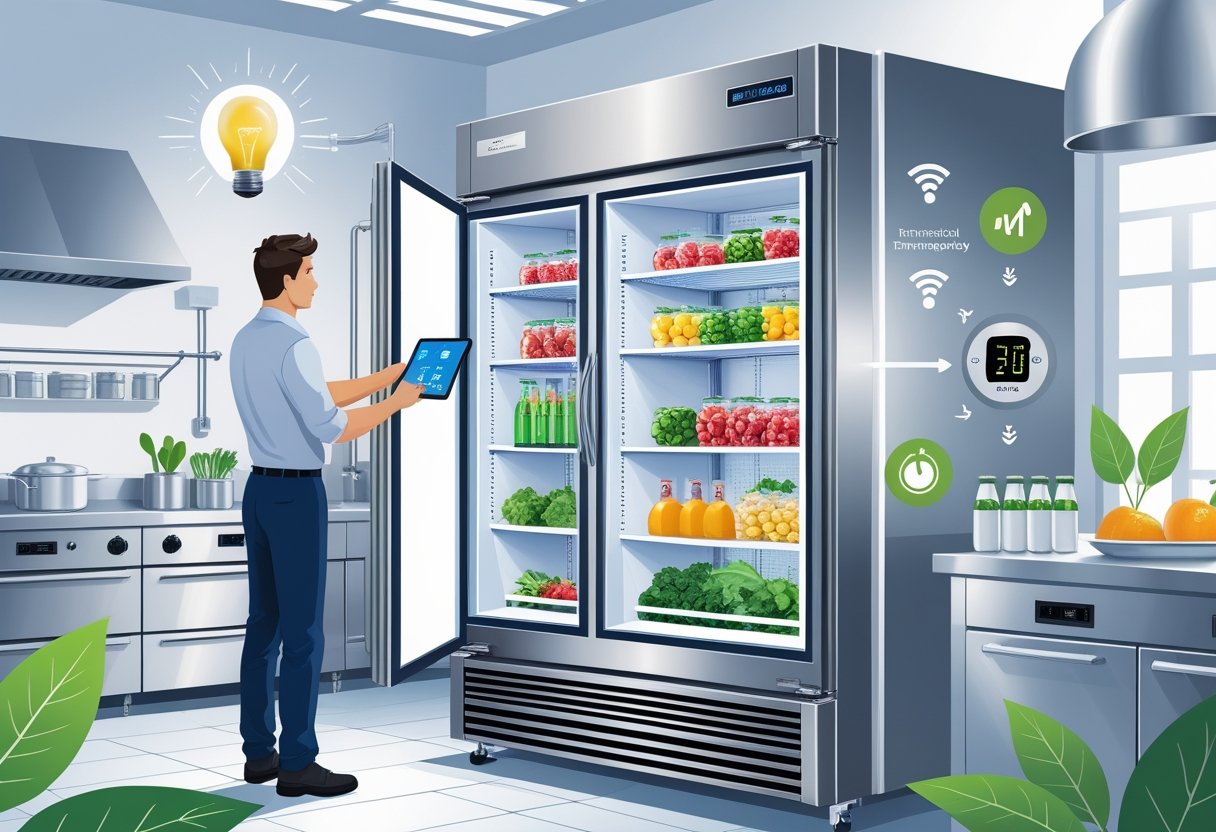
Commercial Refrigerator Energy Efficiency Tips for Reducing Costs and Extending Equipment Life
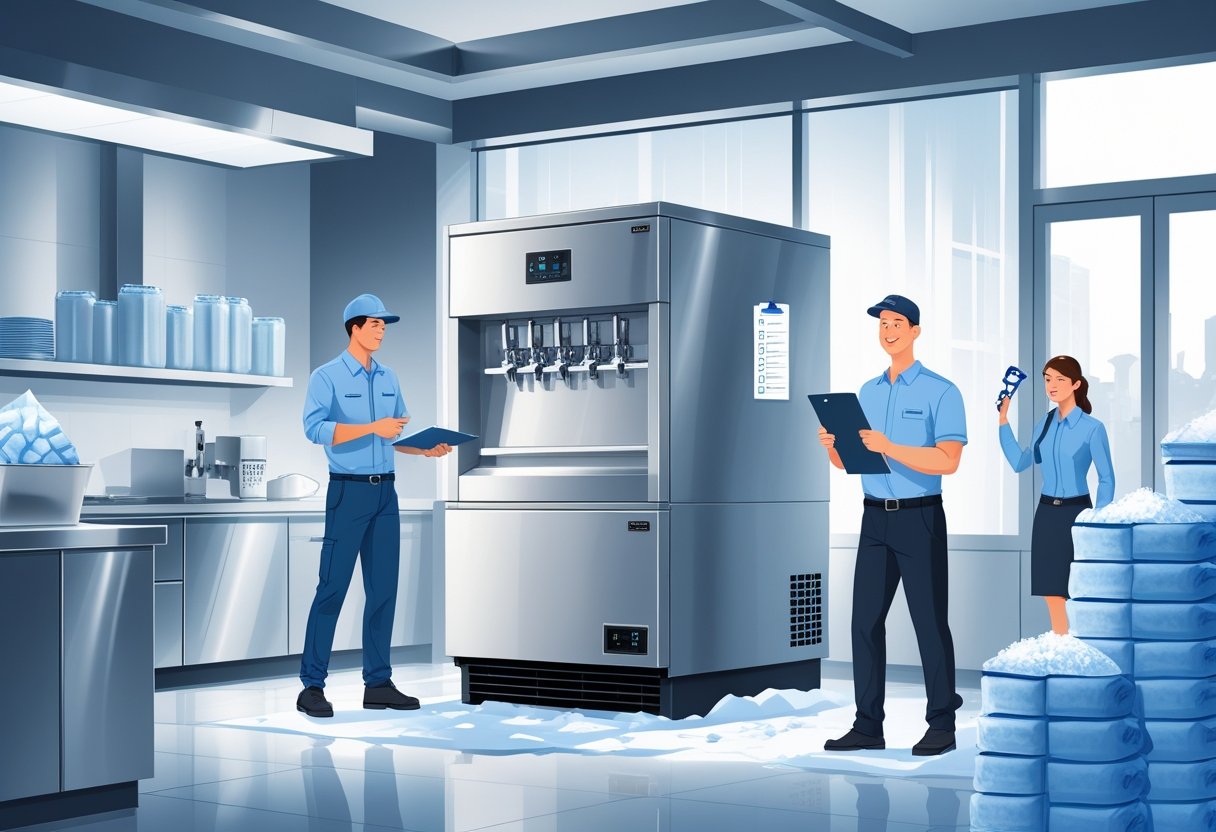
Benefits of Full-Service Ice Machine Rental for Efficient and Hassle-Free Operations
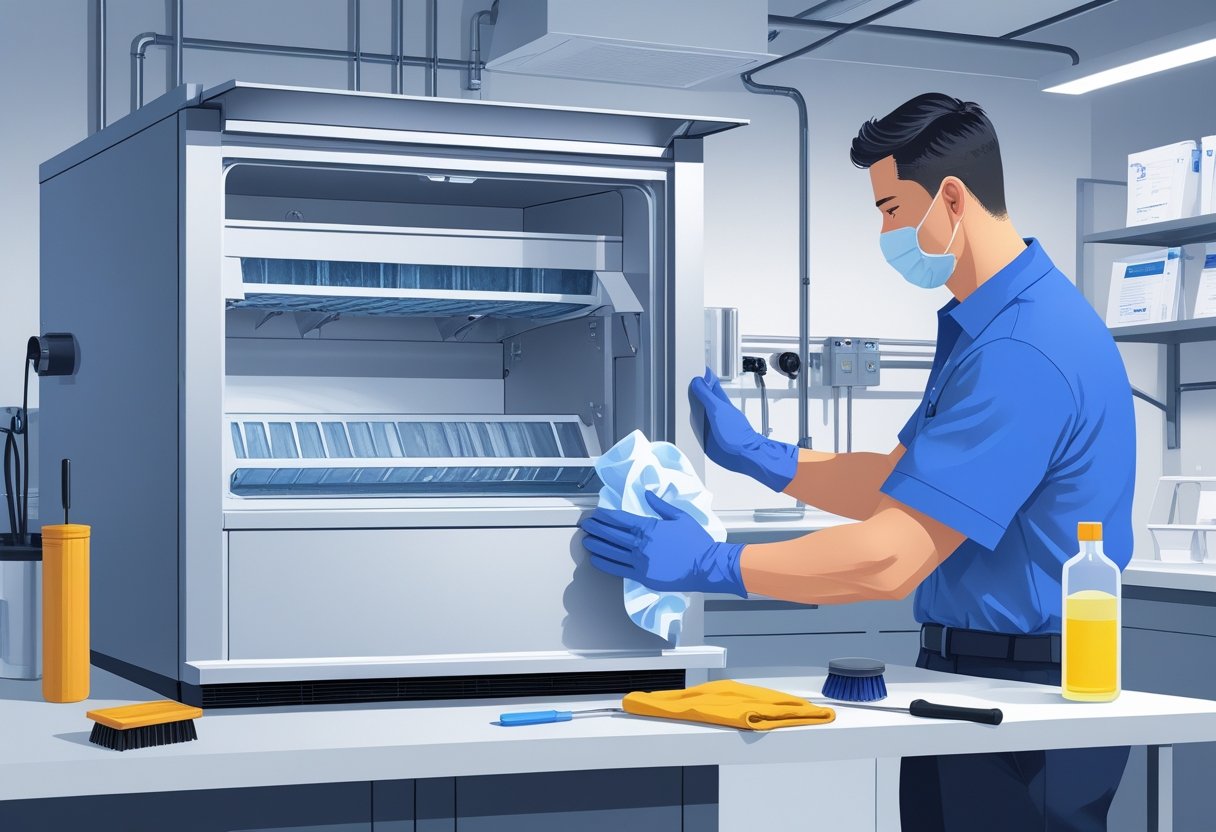
How to Extend Life of Your Ice Machine with Simple Maintenance Tips
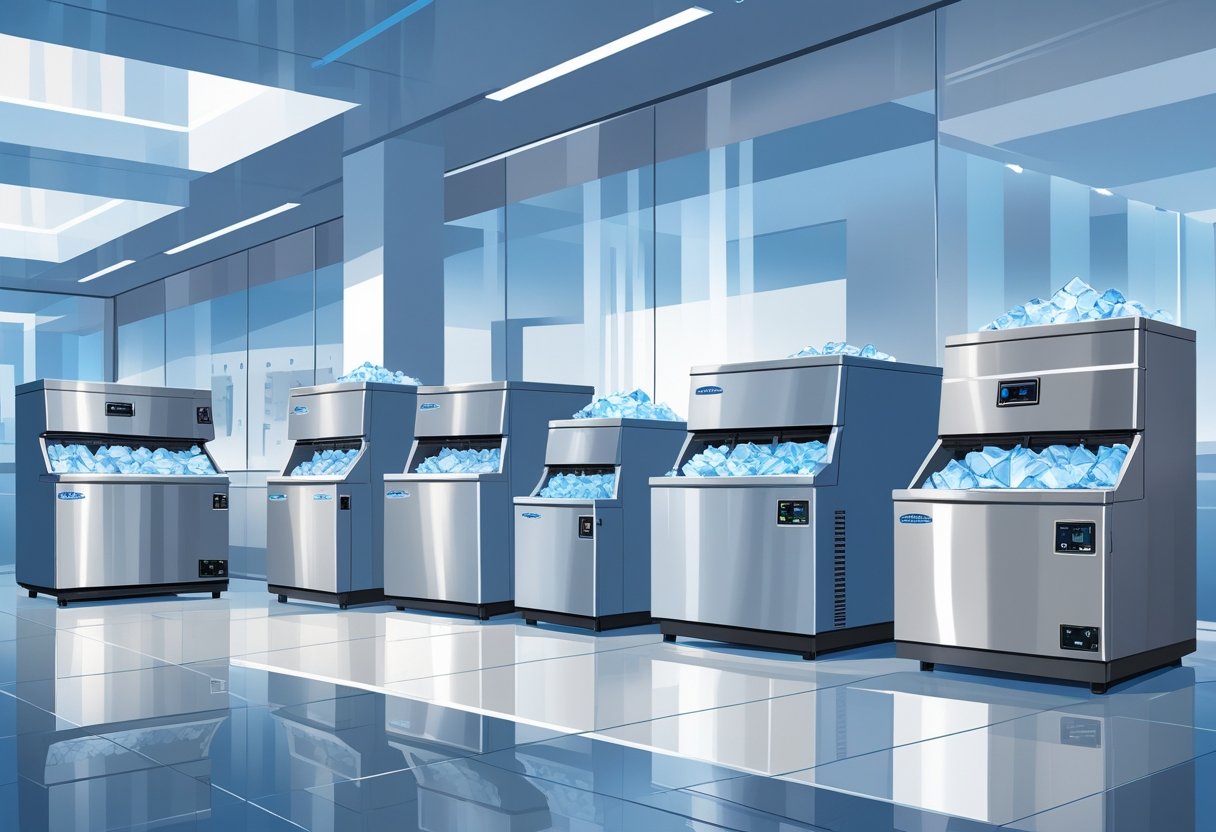
Reliable Ice Machine Brands for Consistent Performance and Durability
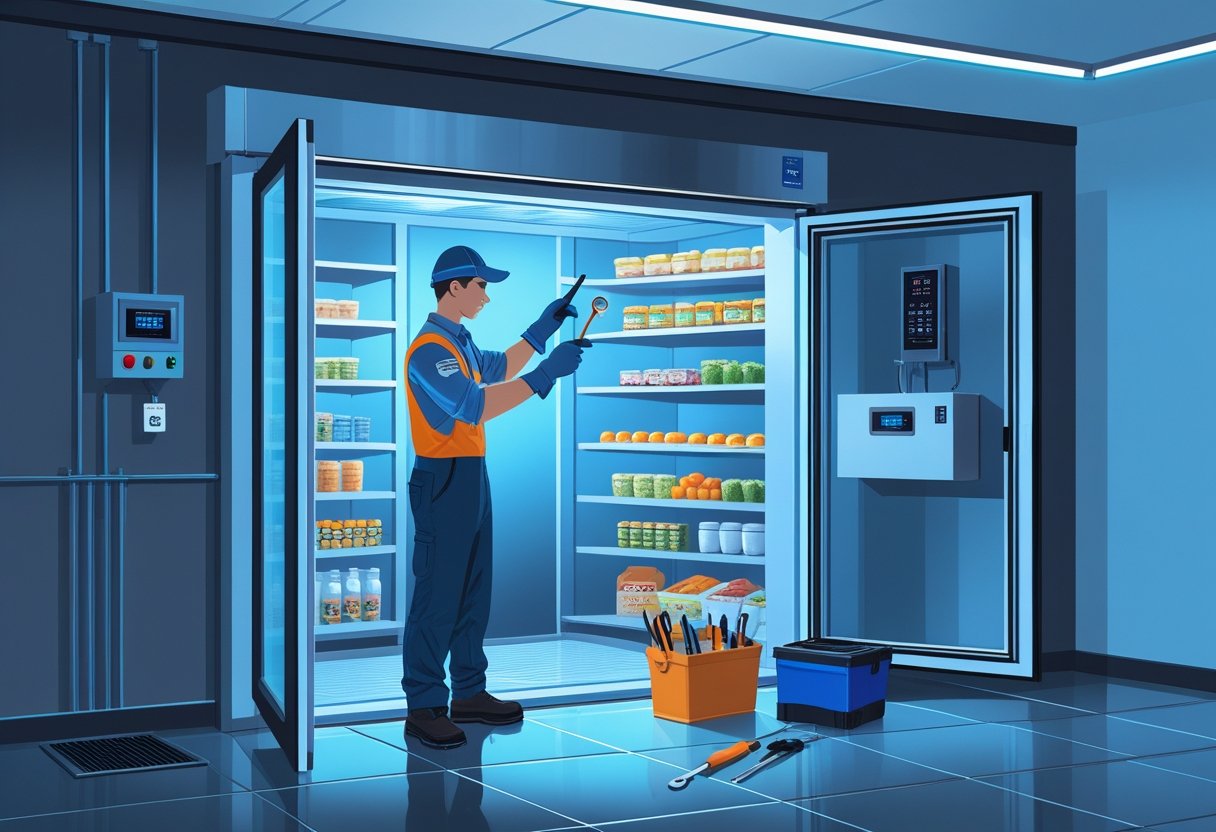
Walk-in Cooler Maintenance Tips for Optimal Performance and Longevity
